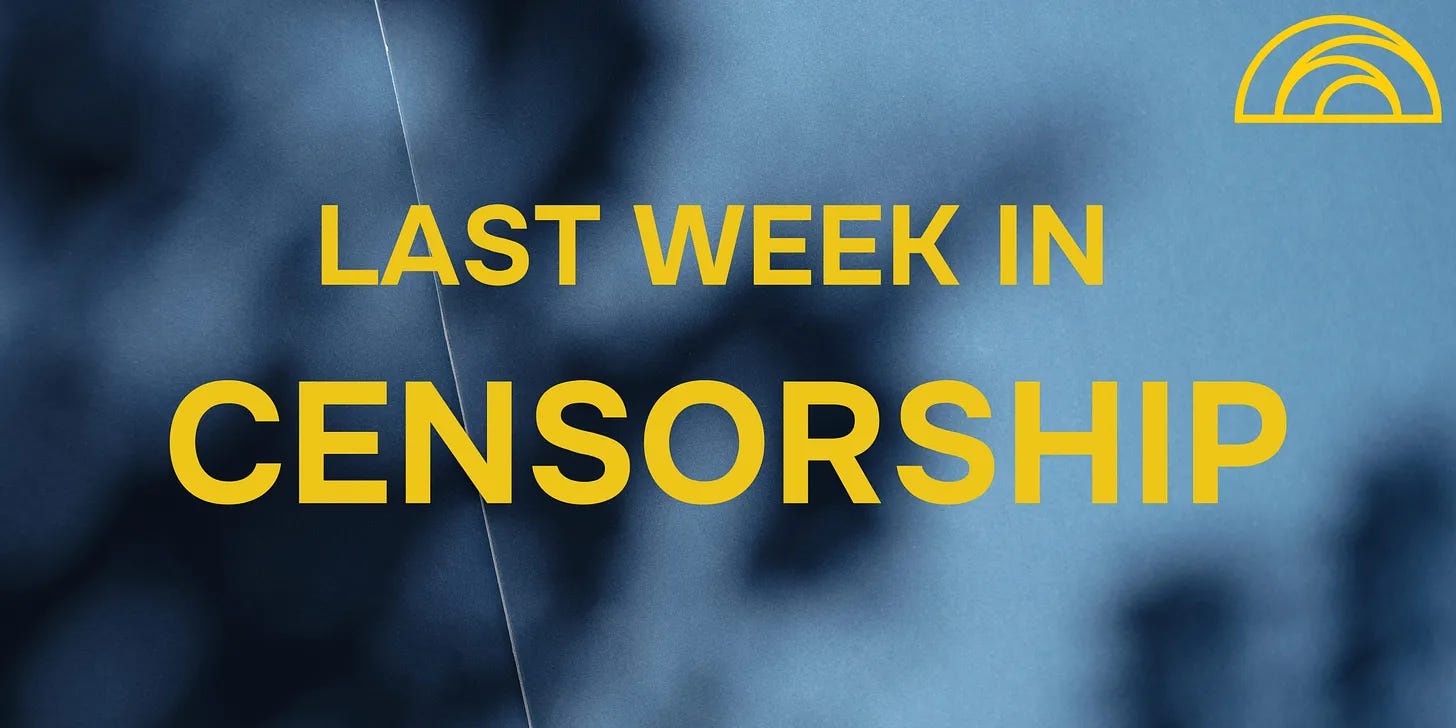Last Week in Censorship: June 1-7, 2025
The Trump administration steps up its war on academic freedom, strips civil rights heroes from Navy ships, and weaponizes antitrust law against media critics.
If you appreciate our work, click the ❤️ heart above to let the world know and help Substack’s recommendation algorithm show it to more people. 🙏🏻☀️
Last week saw the Trump administration dramatically escalate its censorship campaign across multiple fronts. Defense Secretary Pete Hegseth ordered the renaming of a Navy ship honoring gay rights pioneer Harvey Milk during Pride Month, while the Education Department threatened Columbia University's accreditation over its handling of campus protests. Meanwhile, the FTC expanded its investigation into media organizations and advertising groups, using antitrust law to silence critics of Elon Musk's X platform.
Crackdown on Academic Freedom & Research
Trump threatens Columbia's accreditation over campus antisemitism allegations. The Department of Education notified Columbia University's accreditor that the school is "in violation of federal antidiscrimination laws and therefore fails to meet the standards for accreditation" over its handling of campus protests following the October 7 attacks in Israel. Education Secretary Linda McMahon said the Ivy League institution "acted with deliberate indifference towards the harassment of Jewish students on its campus," asserting that this violates federal law. Losing accreditation would be devastating by cutting off federal student aid and making degrees non-transferable. This marks a significant escalation in the administration's war on higher education, with the Trump administration having already pulled some $400 million in funding from Columbia since March.
State-Sponsored Intimidation, Propaganda, and Unwinding Civil Rights Protections
FTC expands investigation into advertiser boycotts. The Federal Trade Commission has demanded documents from more than a dozen media and advertising groups to determine whether they "illegally colluded to boycott online content alleged to be hateful, false or misleading." The civil investigative demand seeks information about watchdog Media Matters' communications with other groups that help advertisers avoid marketing messages next to harmful and illegal content. FTC Chairman Andrew Ferguson had signaled that he would look into advertiser boycotts before he took the top post at the agency—a chilling use of federal power to intimidate organizations that research hate speech and hold platforms accountable for extremist content.




